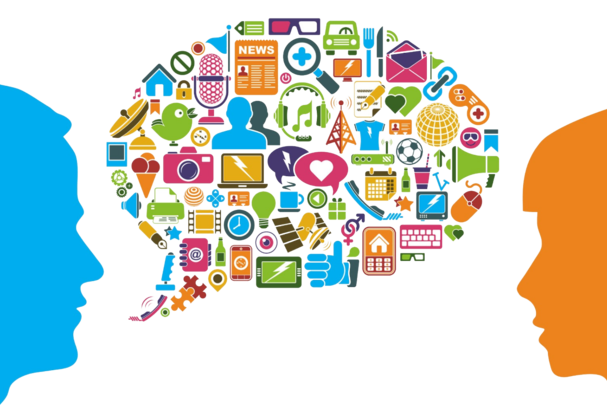
The Importance of Communication
Communication is what allows us to interact with others and the world. Through communication, we learn and share information that shapes our life and experiences.
Communication skills can take a lifetime to master, but it is important that we try to communicate as effectively as possible. Our communication skills affect not only our personal lives, but our professional ones too.
Professional communication
Effective communication skills are necessary in the workplace. Many interactions take place, such as those between employer and employee, between employees, and between employees and customers. To deal with these interactions one must be able to hold eye contact, listen, vary one’s language depending on their audience, write clearly, and collaborate with others. Furthermore, as one’s career progresses, their communication skills must also heighten. The added responsibilities associated with management and leadership mean that communication must become clear and concise.
Personal communication
Good communications skills on a personal level can help to improve one’s relationships. Personal relationships rely on communication as you must understand others while others try to understand you. When people cease to communicate effectively it can cause relationships to break down – people want to feel heard and be appreciated by their loved ones.
It is important to note that communication is a two-way street. Interpersonal communication (face-to-face communication) is essential for maintaining healthy relationships with others. To be a good communicator you must be able to receive information just as well as you send it. To be a good ‘sender’ of information it is important to explain clearly, and to ask questions to clarify your listener’s understanding. When being the ‘listener’ you must listen carefully to the information, and then reflect and process the information so you are sure you understand it. Communication is an active process which requires effort by both parties.
Types of communication
Communication can be categorised into being verbal and non-verbal. When we communicate with others, we often use a combination of these styles, even if we don’t realise it.
Verbal communication is about what we say – written or spoken. Spoken verbal communication includes speaking, while examples of written communication include print media, like books, websites, and email. Verbal communication is very important because we must consider our audience. For example, communicating with a child is different to communicating with an elderly person. This is why verbal communication skills are of the upmost importance to employers – they allow employees to interact with a verity of customers.
Non-verbal communication is about what we show to others, or what we can see. This can include visual images such as symbols and graphs, but often refers to our appearance, body language, gestures, and the tone and pitch of our voices. These things can enhance verbal communication. For example, if someone said they were annoyed and rolled their eyes, it would be communicated very clearly that they are annoyed. Therefore, while we may not think so, non-verbal communication is just as important as verbal communication.
Communication is a skill that is developed over time due to its many complexities. Being able to communicate effectively through verbal and non-verbal means is important in every individual’s personal and professional lives. It is important to actively improve your communication skills so you can develop strong relationships and experience life more fully.
